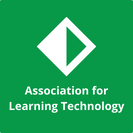Events
ALT runs two main conferences each year: the largest is the ALT Annual Conference, followed by the Open Education Conference. As well as our conferences, we run events throughout the year from 1-hour webinars to full day events. Current and upcoming events are shown below.
We are interested in proposals to run workshops or webinars, and suggestions for topics that could be covered by our events programme. If you have any ideas related to this, please contact us.
Current and Upcoming Events
Working Group: Framework for Ethical Learning Technology
Tuesday, May 13, 2025 - 13:30
CPD Webinar Series 2025: GenAI and Assessment: A Design Guide to Integrate AI into Authentic Assessment
Wednesday, May 14, 2025 - 16:30
ALT Digital Assessments SIG - Managing Digital Assessments: Administration and Implementation
Tuesday, May 20, 2025 - 11:00
ALT-ELESIG Scotland Event: Sustainability in Tertiary Education
Friday, May 30, 2025 - 12:00
CPD Webinar Series 2025 - Managing CMALT cohorts: Discover the University of Edinburgh's CMALT programme
Wednesday, June 4, 2025 - 13:00
OER25: Speaking Truth to Power: Open Education and AI in the Age of Populism
Monday, June 23, 2025 - 09:00
